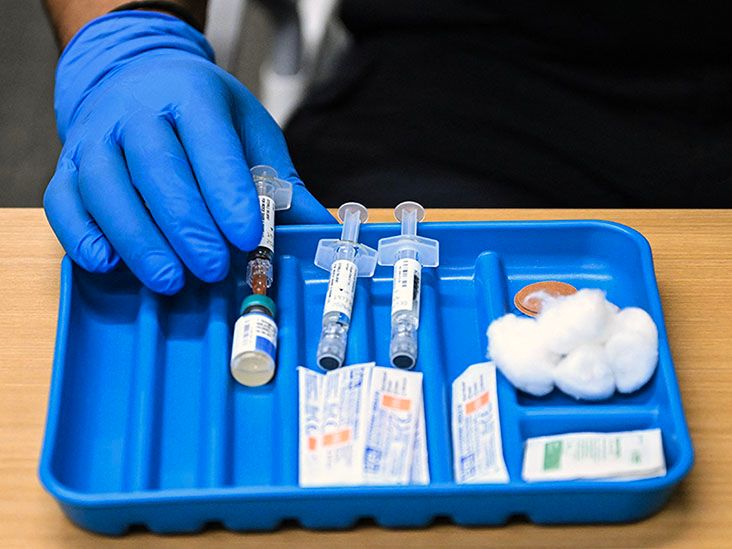Diet and lifestyle changes, such as getting enough sleep and practicing mindfulness, may help improve concentration. In some cases, difficulty concentrating may indicate an underlying health issue.
Regular exercise, good quality sleep, a nutritious diet, and frequent breaks from tasks may all help support concentration.
If people experience persistent difficulty concentrating even after making these lifestyle changes, they can speak with a healthcare professional to determine whether there could be a medical cause.
This article lists changes people can make to potentially improve their concentration, conditions that can affect focus, and when to speak with a doctor.

According to a
Trying to carry out multiple tasks at the same time places more demand on areas of the brain involved in attention and focus, which have limited capacity.
Focusing on one task at a time and seeing it to completion may help improve concentration and focus.
Getting enough sleep
Adults usually need
Tips for getting enough sleep include:
- waking up and going to bed at the same time every day
- exercising each day, but not in the few hours before bed
- avoiding caffeine, nicotine, and alcohol later in the day
- having a relaxing routine to unwind before bed
- creating a calm environment for sleeping in
A 2023 study found that concentration had a significant positive link to mindfulness, whereas perceived stress, irritability, and psychological distress had a negative association with concentration.
Mindfulness is the focus on the present moment, without judgment. The National Institutes of Health (NIH) suggest the following ways to practice mindfulness:
- taking deep breaths
- taking a walk and paying attention to the surroundings
- noticing food texture and flavors when eating
- taking a moment to scan the body by bringing attention to each area
According to the American Psychological Association (APA), concentration begins to dip after about 30 minutes of focusing on a task. The organization refers to older research that found people who took a short break in a visual task maintained performance levels for 40 minutes.
Those who did not take a break experienced a decline in performance.
This suggests regular small breaks may help people stay focused and sustain concentration levels. Even a break of a few seconds may make a positive difference.
Spending time in nature may have positive effects on cognitive function. Urban environments may negatively affect attention, whereas green spaces may help improve concentration and working memory.
A
According to a 2018 study, physical activity is positively linked to academic performance, and structured physical activity may improve concentration and mental focus.
In particular, coordinated bilateral exercises, which use both sides of the body and simultaneous movements, may engage both sides of the brain and improve cognitive function.
The study found that school-aged children who took part in daily coordinated bilateral exercise breaks had significant improvements in concentration and attention after 4 weeks compared with a control group.
Getting up and moving around from a desk may also help improve concentration and productivity. Standing up for periods of work or taking breaks to walk around may help improve blood flow and circulation, which may help increase how active and engaged the brain is.
According to a
Foods with a low glycemic index may help improve attention and memory. A lack of amino acids may also affect neurotransmitters such as serotonin which may link to learning, reasoning, and memory.
The review’s authors suggest certain vitamins, minerals, and healthy fats may help promote concentration and intellectual ability, including:
- a balance of omega-6 and omega-3 fatty acids
- polyunsaturated fatty acids
- vitamins B1, B6, and B12
- folic acid
- vitamin D
- choline
- iron
- vitamin C
- vitamin A
- vitamin E
- zinc
- selenium
- lutein
- zeaxanthin
Eating a diet rich in fruits and vegetables, limiting saturated fat and sugar intake, and drinking enough water each day may help support concentration levels.
A
- Timeboxing: People can allocate a time slot for each item on their to-do list and add it to a calendar or app. This ensures they have a set time in the day for the tasks they need to complete.
- Eliminating distractions: A person can use software to block or set time limits for using websites or apps that may be distracting when performing a task. It may also help to find a quiet space to work that is free from clutter.
- Setting timers: People can try working for a set period and then taking a short break to move around or stretch.
- Using sound or music: Some people may find background sounds or music helps them concentrate. Guided meditations may also help people stay focused on a task.
The following factors and health conditions can cause difficulty concentrating or contribute to a decline in concentration:
- stress
- lack of sleep
- a mood disorder, such as anxiety or depression
- nutritional deficiencies
- attention deficit hyperactivity disorder (ADHD)
- medication side effects
- obsessive-compulsive disorder (OCD)
- thyroid conditions
If changes in diet or lifestyle do not help improve concentration, people can contact a doctor. Persistent problems with concentration may be a sign of an underlying condition.
People can also speak with a doctor if an inability to concentrate affects their personal or working life. Healthcare professionals can suggest lifestyle changes and monitor people to see if these management strategies make a difference.
People may be able to improve concentration by addressing any potential causes, such as a lack of sleep or poor nutrition.
Getting regular exercise, practicing good sleep hygiene, eating healthily, and using productivity tools may all help support concentration.
If people have persistent difficulty concentrating, they can see a doctor to check if an underlying health condition may be the cause.


